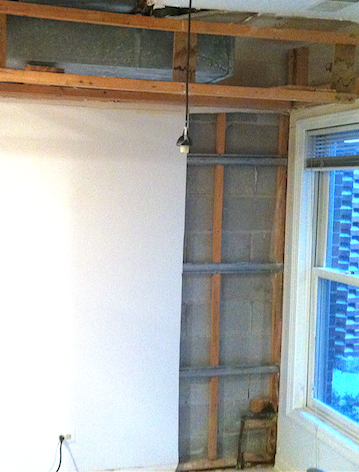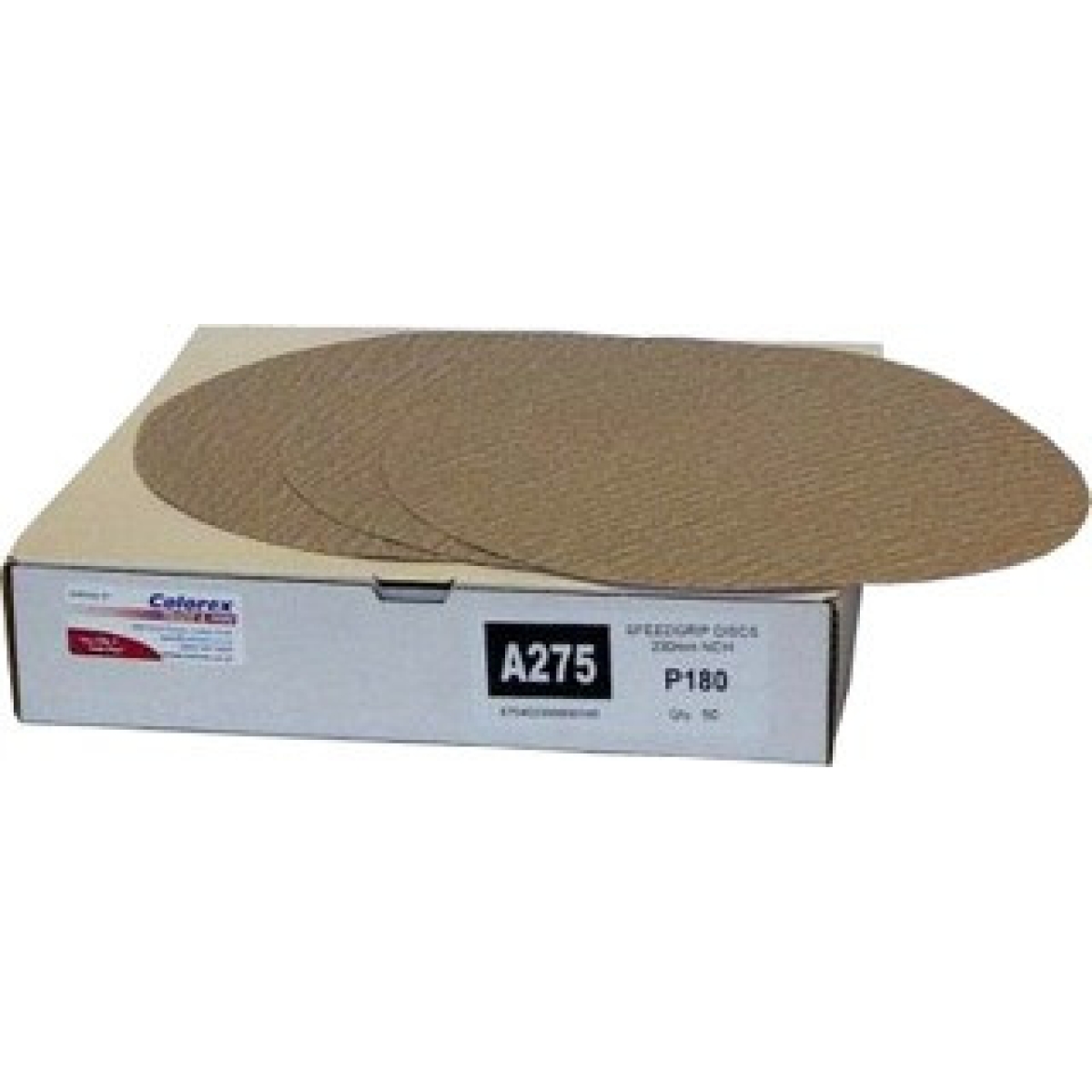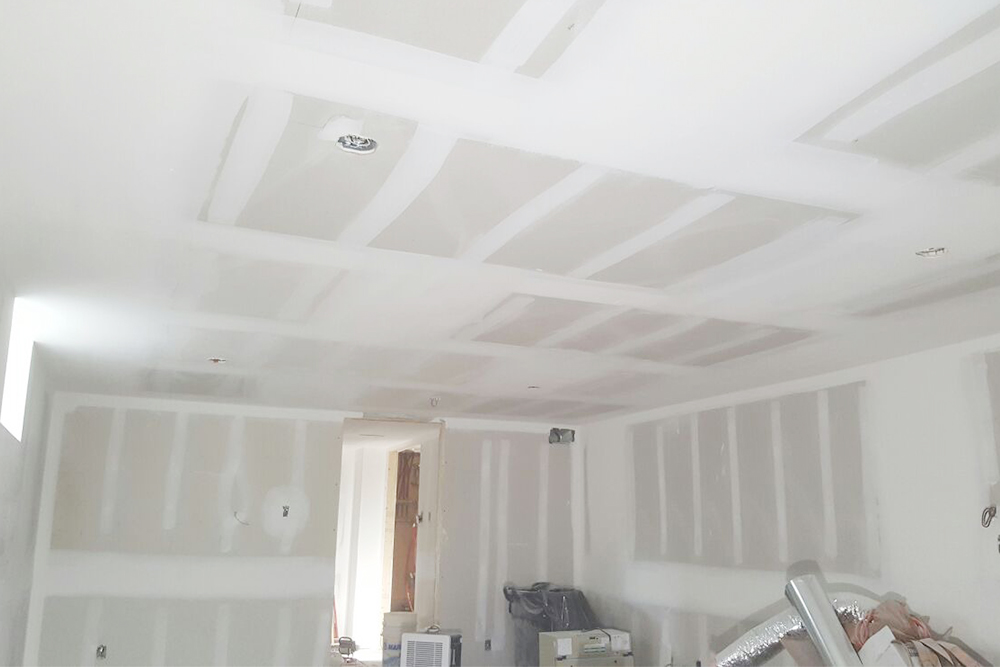
Drywall sandpaper prepares interior walls of buildings for painting. Sanding is required to smoothen the rough edges and fill any gouges before applying paint. It can be challenging, particularly if there are any defects or depressions in the walls. There are many sanding techniques that can be used. These include wet sanding, dry sanding, and power sanding. Each method requires different tools. If you are working on a large project, you may want to consider using an orbital sander.
Wet sanding is easier than dry sanding. This technique uses more energy but produces a more durable result. You can also seal doorways and other areas with sheeting plastic, which will prevent drywall dust from getting out. Additionally, it is recommended to use a respirator. A respirator should not be used if you are concerned about breathing in drywall dust. You can protect your eyes by wearing glasses and a hat. Make sure that the drywall area is well ventilated.
For sanding, you can use either a hand sander or a power sander. For small jobs, the hand sander is an excellent choice. The finer grit of the hand sander is perfect for finesse work. You can use it to smoothen shallow scratches in fastener strips, screw/nail pattern and other fastener strips. It is also an excellent choice to repair seams between sheets of drywall.

When you're sanding, it is a good idea to keep your sanding head slightly angled and your sanding pole parallel to the sanding surface. This will prevent the sanding surface moving. Over-pressure can cause damage to the drywall face paper. Use light to moderate pressure and protect your eyes with a mask.
A pole sander combined with a block sander will allow you to cover a greater area in a single session. It is also more accurate. Once you are done sanding, you can apply another coat to the inside corners with an easy-sanding compound.
Gator Drywall Sandpaper can be used to prepare drywall surfaces for finishing. It is both economical and efficient. It has a silicon carbide grain which cuts through joint compounds. Gator sandpaper can be used to smoothen any kind of drywall since it is sanded thinly.
Fine sandpaper can also be purchased. This is especially helpful for sanding between coats of paint. There are many different grits. To smoothen the surface, begin with the coarser grades and then work your way up to the finer grades. Before you begin sanding make sure that the drywall glue has dried completely.

Use a vacuum filter that is specifically designed to clean the surface after you are done sanding. Make sure you remove all drywall dust from the drywall sanding equipment. You can prevent drywall dust entering your hair by wearing a hat.
You might need to invest in a few sanding equipment depending on your preferred method of sanding. A sanding block, sponges, and a pad for sanding are some of the accessories. Another accessory is a double strap dust mask, earplugs, as well as a headgear.
FAQ
How important does it matter to be pre-approved before you apply for a loan
It is important to get preapproved for a mortgage because you will know how much you can borrow. It also helps you determine whether or not you qualify for a particular loan program.
How long does it usually take to renovate your home?
It depends on the size of the project and the amount of time that you spend each day. An average homeowner will spend three to six hours a week on the project.
Are permits necessary to renovate my property?
Yes. Before you start any home improvements project, permits are necessary. You will require a building permit as well as a plumbing permit in most cases. A zoning permit may be required depending on what type of construction you are doing.
Is it better to remodel an older house than build a brand new one?
There are two options if your goal is to build a new home. A pre-built home is another option. This type of home is already built and ready to move in to. You also have the option to build your home from scratch. You will need to hire a professional builder to help design and construct your dream home.
How much time and money it takes to design and plan a new house will affect the cost. Because you will likely be doing most of the work yourself, a custom home can require more effort. But, you also have more control over which materials you choose and where you place them. It may be easier to find a contractor who is skilled in building custom homes.
A new home is usually more expensive than a remodeled home. This is because you will have to pay more for the land as well as any improvements that you make to it. In addition, you will need to pay permits and inspections. The price difference between a newly built and remodeled home averages $10,000-$20,000.
How should home renovations take place?
It is important to determine where you want to place everything when renovating your house. If you are looking to sell your property soon, you need to plan how you will present your home to buyers. Next, you should start thinking about the design of your kitchen, bathroom, living room, etc. Once you have decided which rooms you want to renovate, you should start looking for contractors who specialize in those areas. You can then begin your renovations once you have hired an expert contractor.
How do I start a renovation of a house?
The first step in fixing up a home is to get rid of any clutter. You will need to clean out all moldy areas and repair any leaky pipes. Finally, you'll need to repaint the interior. Finally, you will need to wash the exterior surfaces clean and paint.
How Much Does It Cost To Renovate A House?
The type of material, the project size and the complexity of renovations will all impact the cost. Certain materials, such as wood, require special tools like drills and saws. Others like steel don't. The price of renovation also varies depending upon whether you want your contractor to do everything for you or if you prefer doing some work yourself.
The average cost of home improvement projects ranges from $1,000 to $10,000. The cost to hire professionals would be anywhere from $5,000 to $25,000. If you hire professionals, the cost would be between $5,000 and $25,000. However, if the task is done entirely by yourself, the cost could rise to as high as $100,000.
It is important that you are aware of the many factors that affect the final price of renovations. The type of material used (e.g. brick vs concrete), the size of the project, the number of workers involved, the length of the project, etc. You must always keep these factors in mind when estimating the total cost of renovation.
Statistics
- According to the National Association of the Remodeling Industry's 2019 remodeling impact report , realtors estimate that homeowners can recover 59% of the cost of a complete kitchen renovation if they sell their home. (bhg.com)
- They'll usually lend up to 90% of your home's "as-completed" value, but no more than $424,100 in most locales or $636,150 in high-cost areas. (kiplinger.com)
- Design-builders may ask for a down payment of up to 25% or 33% of the job cost, says the NARI. (kiplinger.com)
- On jumbo loans of more than $636,150, you'll be able to borrow up to 80% of the home's completed value. (kiplinger.com)
- A final payment of, say, 5% to 10% will be due when the space is livable and usable (your contract probably will say "substantial completion"). (kiplinger.com)
External Links
How To
5 Things You MUST Know Before Starting Your Home Renovation
-
Do you really want to do this? If you are planning to do major home improvements like renovating your bathroom or building new houses, you will likely need help. You might reconsider if you're not confident enough to handle such a huge task on your own. You could lose a lot of time and money and not reap any real benefits. Hire someone who knows the ropes to help you. These people will save you time, stress, and provide a beautiful place to live in.
-
How much should I spend? - This one might seem obvious, but spending too much on a renovation project could actually make matters worse. Because you will likely end up paying most of the costs back at the conclusion of the day. If you have a budget in place, stick with it. A lack of a budget could mean that you end up spending a fortune and getting nothing in return.
-
Do I choose to hire professionals or DIY? - There is no right or incorrect answer. However, we recommend hiring professional tradespeople when you can afford them. They'll give you the best advice possible on how to proceed with your particular project. They can install the plumbing correctly and make sure that it is done safely. DIY projects often involve a lot trial and error. You'll learn a lot the hard way. Plus, you'll have to deal with all sorts of problems that arise during the process.
-
Can I afford it? - Don’t underestimate the cost associated with a home renovation. You might need to borrow money from family and friends to pay the bills. If you are planning on selling your existing property soon after finishing the renovations, it is important to include the cost of selling it in your calculations.
-
What is the best place to start? - When it comes to choosing where to start, there's no right or wrong place. We recommend that you pick something that you are passionate about. If you enjoy what you do, you will be more motivated to continue working and less likely procrastinate. Avoid areas that require constant maintenance. You shouldn't redecorate your living space if you are constantly cleaning up dirt and dust.